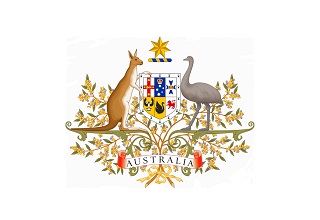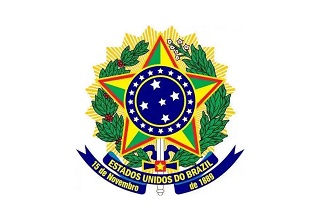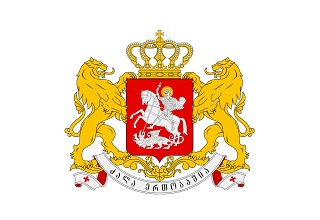Regarding the Inspection and Quarantine Requirements for Export of Dried Cherry from Uzbekistan to China
According to the regulations of the Chinese Customs and the Ministry of Agriculture of Uzbekistan concerning the inspection, quarantine, and sanitary requirements for the export of dried cherries to China, effective immediately, dried cherries from Uzbekistan meeting the following requirements are permitted for import.
I. Inspection and Quarantine Basis
(1) The Food Safety Law of the People's Republic of China and its implementing regulations;
(2) The Law of the People's Republic of China on Entry and Exit Animal and Plant Quarantine and its implementing regulations;
(3) The Law of the People's Republic of China on Import and Export Commodity Inspection and its implementing regulations;
(4) The Measures of the People's Republic of China on the Administration of Food Safety of Imported and Exported Goods;
(5) Protocol between the General Administration of Customs of the People's Republic of China and the Ministry of Agriculture of the Republic of Uzbekistan on Inspection, Quarantine, and Sanitary Requirements for the Export of Dried Cherries from Uzbekistan to China.
II. Permitted Import Products
Permitted imported dried cherries refer to dried cherry products suitable for human consumption, made from the fruit of the cherry tree (Prunus pseudocerasus Lindl.), a perennial woody plant belonging to the genus Prunus (Rosaceae) grown in the Republic of Uzbekistan, and processed within Uzbekistan through washing, drying, sorting, and other processing techniques.
III. Food Safety Requirements
Dried cherries exported from Uzbekistan to China must comply with relevant Chinese laws and regulations on food safety and phytosanitary measures, national food safety standards, and the provisions of the Protocol.
IV. Phytosanitary Requirements
(1) Dried cherries exported to China must not contain the following quarantine pests of concern to Chinese Customs: European cherry fruit fly (Rhagoletis cerasi), grape leafroller (Lobesia botrana), Mercetaspis halli, elm scale insect (Lepidosaphesulmi), Verticillium dahliae, and Pseudomonas syringae pv. syringae.
(2) Dried cherries exported to China must not contain live insects, insect eggs, soil, or be mixed with weed seeds, plant debris, metallic foreign objects, or gravel.
(3) Dried cherries exported to China should undergo fumigation treatment before export to ensure that the dried fruit does not contain live insects.
V. Enterprise Requirements
The Ministry of Agriculture of Uzbekistan shall inspect Uzbek cherry production, processing, and storage units exporting dried cherries to China in accordance with the relevant requirements of Chinese Customs for the registration of overseas production enterprises for imported food. Enterprises meeting the requirements of Chinese Customs shall be recommended for registration by Chinese Customs. Chinese Customs will register qualified enterprises. Only after registration can the products of a registered enterprise be exported to China. The list of registered Uzbek cherry exporting enterprises can be found on the official website of Chinese Customs.
VI. Raw Material Requirements
The raw materials for dried cherries exported to China must come from cherry-growing enterprises confirmed by the Ministry of Agriculture of Uzbekistan to meet relevant phytosanitary and food safety requirements.
VII. Processing Requirements
The Ministry of Agriculture of Uzbekistan shall guide and supervise the planting, production, processing, storage, transportation, and export of raw materials for dried cherries exported to China to ensure compliance with relevant food safety and phytosanitary requirements of both China and Uzbekistan, and to prevent contamination by pathogenic microorganisms or toxic and harmful substances.
VIII. Packaging and Labelling Requirements
Dried cherries exported to China should be packaged in clean, hygienic, breathable, new materials that meet food safety and phytosanitary requirements, and leakage should be prevented during transportation. Each package should be labeled with "本产品输往中华人民共和国/This product is exported to the People's Republic of China" in Chinese or English, along with traceable information such as the name of the dried cherries, place of origin, name of the processing enterprise and its registration number in China, and the name and address of the exporter. This information can be affixed to the packaging as a label.
IX. Transportation Requirements
Before shipment, the Ministry of Agriculture of Uzbekistan shall inspect the means of transport for dried cherries exported to China. The means of transport should meet sanitary requirements and must not carry quarantine pests or other restricted quarantine materials, such as weed seeds, live insects, plant debris, soil, and other impurities.
X. Certificate Requirements
Before export, the Ministry of Agriculture of Uzbekistan shall issue a phytosanitary certificate for dried cherries exported to China that have passed inspection and quarantine and meet the requirements of the Protocol. The supplementary declaration section of the certificate should indicate the name of the cherry processing enterprise, its registration number in China, and "The dried cherries certified by this phytosanitary certificate comply with the provisions of the Protocol on inspection, quarantine and sanitary requirements for dried cherries to be exported from Uzbekistan to China signed on October 14th,2025 by China and Uzbekistan. The dried cherries are free from Rhagoletis ceras, Lobesia botrana, Mercetaspis halli, Lepidosaphesulmi, Verticillium dahliae and Pseudomonas syringae pv. syringae, and other quarantine pests of concern by the Chinese side.".
Quarantine treatment methods (such as agents, temperature, time, and other technical requirements) should be specified in the phytosanitary certificate.
XI. Import Inspection and Quarantine and Handling of Non-compliance
(1) Import Inspection and Quarantine. After dried cherries imported into China arrive at the port of entry in China, Chinese Customs will conduct inspection and quarantine supervision. Those that pass the inspection will be allowed entry.
(2) Handling of Non-compliance. If Chinese Customs discovers any violations of relevant Chinese laws and regulations on food safety and phytosanitary measures, national food safety standards, or the provisions of the Protocol in dried cherries imported into China, Chinese Customs will handle the matter in accordance with relevant Chinese laws and regulations.
GACC
October 28, 2025




